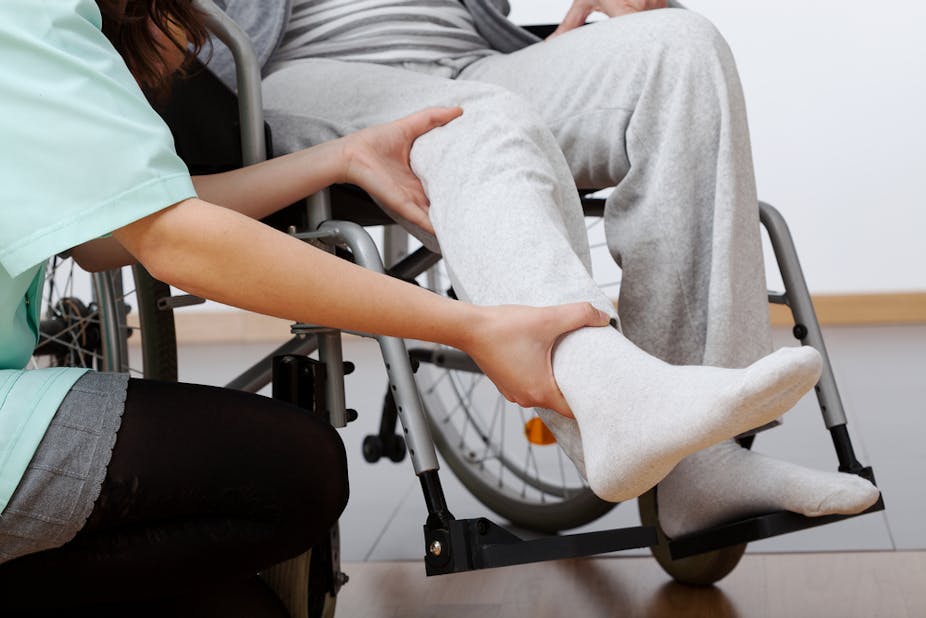Thirteen years ago, when Paul was 17 years old, he sustained a severe acquired brain injury which left him with 24-hour support needs.
Paul now requires feeding through a tube in his stomach. His muscle tone has altered, so his movement is limited and he has ongoing continence and pressure care issues. Paul needs regular mouth suctioning to ensure he does not inhale his own saliva and contract pneumonia.

Paul is already involved in the National Disability Insurance Scheme (NDIS) planning process; others with high-needs will gain access when the scheme is fully implemented in 2019.
But as the NDIS rolls out nationally, some major policy planning problems must be resolved.
Our research, released today, shows people with the highest physical and medical support needs risk being shunted between the heath and disability sectors, and missing out on timely, well-coordinated care.
Health care versus disability services
To date, people with significant disability have reported some of the most unmet needs in the sector. They often rely on high levels of family support, spend prolonged periods in acute hospital beds, or enter residential aged care facilities because there are no other options available to them.
To get a better sense of the care requirements among this group, we surveyed 173 people with disability and high daily support needs living in shared supported accommodation across Victoria, New South Wales and the ACT.
Respondents typically required daily support with multiple everyday activities – at times, the support of two or three staff at once. Much of this clearly falls under disability support entitlements and will be covered by NDIS-funded support packages. However, this group also experience a range of complex health support needs secondary to, but intertwined with, their disability.
Among our respondents, three-quarters (76%) experience bladder or bowel issues, 45% have special requirements for eating, drinking or swallowing, and at least 58% require access to enrolled or registered nursing staff. These medical, rehabilitation and health-care needs affect disability supports and vice-versa.
At this point in the scheme trial, it remains unclear where the line is drawn between the health and aged care systems and the NDIS for participants. When does disability-related equipment become medical equipment, for instance? And where does clinical rehabilitation finish and support to build social and economic participation begin?
In the past, Australia has made distinctions between supports funded by health versus disability systems. In part, this is a reflection of the movement to de-medicalise disability and focus on inclusion and participation when people have long-term functional impairments. In part, it reflects historical state-Commonwealth negotiations about who is responsible for what.
Delineations between the new national disability scheme and health, education, and housing sectors have also been drawn in bilateral agreements signed with the states and the NDIS Act. The NDIS is not intended – nor costed – to meet health and rehabilitation needs which state or territory health departments have traditionally addressed.
Solving the problem
When an NDIS participant is told a service is health-related and therefore out of scope, they need a clear path and assistance to seek and obtain the service from the health system.
Hospitals, general practitioners, and other health professionals need clear and robust processes for collaborating with NDIS-funded services. Discharge from a health service needs to be coordinated with entry to the NDIS, or, where the person is already a scheme participant, re-engagement with NDIS-funded services.
In the shorter term, it is vital for the scheme to engage with state and Commonwealth health departments and negotiate a framework for the health-disability interface. Cost-sharing or allocation between the two sectors will also be necessary through these transitions.
Ultimately, it may be necessary to legislate the obligation for health and disability systems to coordinate.
With new NDIS sites launching from July 2016, urgent work is needed to address these demarcation disputes and coordinate the health-disability interface to achieve the best outcomes for Australians living with disability.

